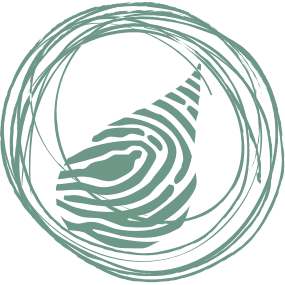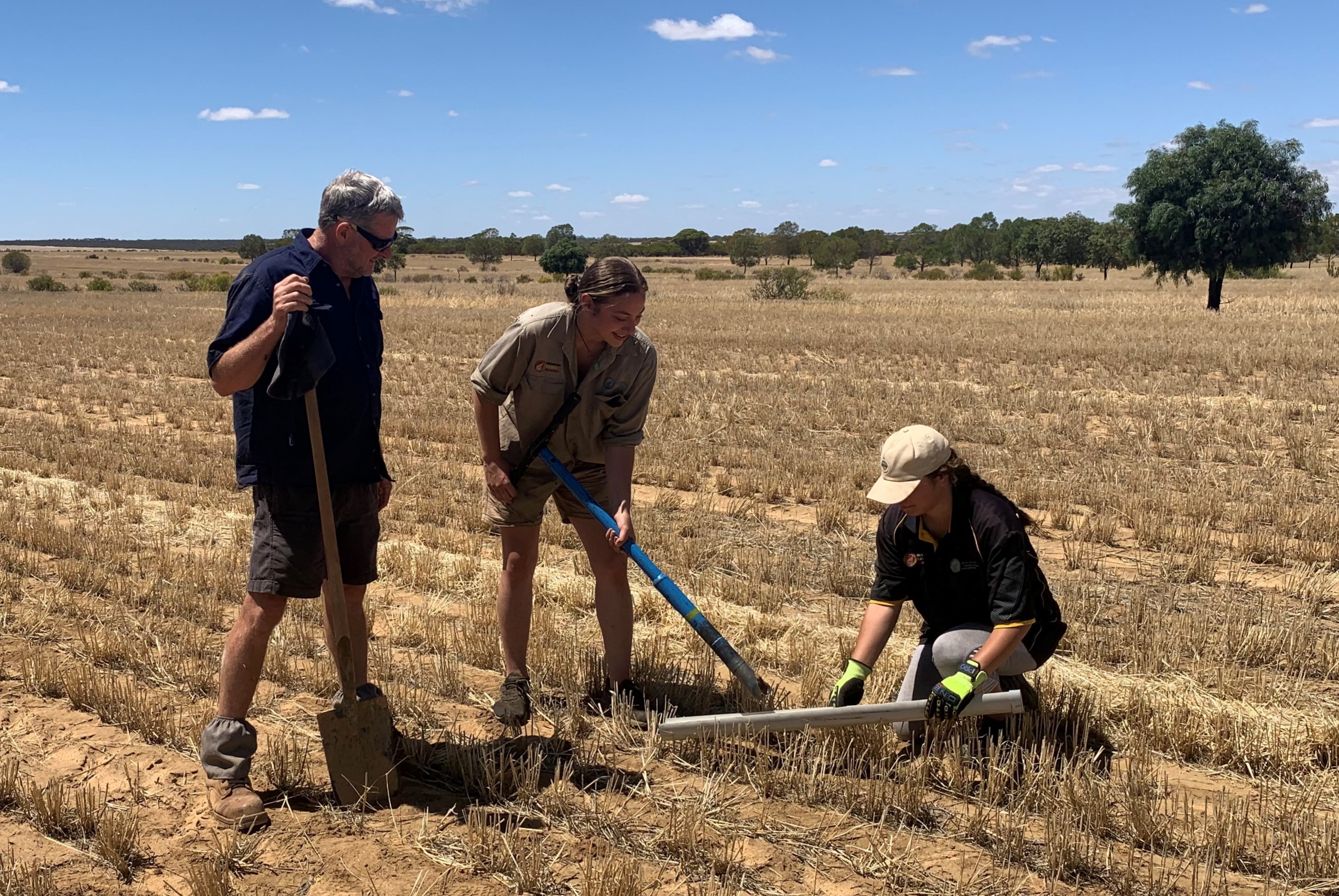For Wheatbelt NRM’s Noongar Budjar Rangers, a healthy country and healthy soils are of the utmost importance.
They are now expanding their skillset in this area by completing soil sampling at one of our demonstration farm sites.
Last week Phaedra and Joyce from the Ranger team travelled to Gabbin to assist farmer Rob Grylls in our composting trial, where he has been evaluating the benefits of using composted chicken manure alongside conventional fertiliser.
The results of the sampling will give an indication of what impact composting may have had on soil health metrics like soil carbon and biology.
Aboriginal NRM project officer Jermaine Davis said it was great to see local farmers and the Noongar Budjar Rangers coming together to care for country.
“They are nurturing the country with soil sampling, that delivers a strong message that Aboriginal people are back caring for country,” he said. “It’s something I wanted to do for a long time with our ranger program.
“It’s another life skill they can learn.”
Drawn from the Ballardong People of the Noongar Nation, the Noongar Budjar Rangers have been operating since 2014.
Up to 17 local Aboriginal people are now employed through the program, empowering cultural custodians of the Wheatbelt to bring health back to country through activities including seed collection, revegetation and now soil sampling.
Samples were initially taken 12 months ago across seven lots at the Gabbin farm, where Grylls manages a mixture of sheep and broad acre cropping.
Grylls has since prepared three plots as part of the trial, one using conventional fertiliser plus nitrogen, one with a 50-50 blend of conventional fertiliser and composted manure and one fertilised solely by the composted chicken manure product.
The final plot produced a healthy four tonne per hectare barley crop, and while there are other variables to take into account – such as soil type – its performance has shown promise.
Wheatbelt NRM project delivery officer Bonny Dunlop-Heague said the final samples would help quantify the impact the composted chicken manure has had on the health of Grylls’ soils.
She praised the work of the Noongar Budjar Rangers in facilitating what was a crucial step in the process.
“Joyce and Phaedra were great to work with,” she said. “Rob was really keen to chat to the Rangers about his project and they were really interested in what he had to say in regards to the soil science and his experiences.”
Results will be compiled and presented at our workshop in Wongan Hills on March 18, where Rob Grylls will discuss his experiences with the trial.
You can register for that workshop by emailing bdunlop@wheatbeltnrm.org.au.
This Wheatbelt NRM project is supported through funding from the Australian Government’s National Landcare Program.


